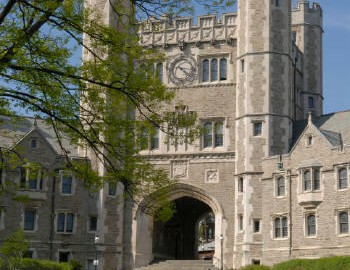If You Have a Legacy Advantage – Use It!
Last month, most highly selective colleges and universities announced their admissions rates for next fall’s freshman class. Many schools saw their rates decline to record lows, and a number of universities had admissions rates under 10%, including Stanford, Harvard, Princeton, Columbia, Yale, Penn, Brown, Duke, Northwestern, and Vanderbilt. In such an ultra-competitive environment, students with one or both parents, siblings, or grandparents who have graduated from the same elite school should definitely consider taking advantage of their standing as legacies. At most top-tier institutions, legacy status is a measurable plus when you’re seeking to use every possible advantage to gain a competitive edge.
The administrations and trustees of top-tier institutions feel very positive about legacy admissions. They value tradition, so they seek to create and maintain lasting bonds with families. The alumni fundraising benefits that legacy policies create are important to the maintenance and growth of endowment funds, so special consideration for legacies will remain an essential part of admissions processes. Former Harvard President Larry Summers has said that, “Legacy admissions are integral to the kind of community that all private educational institutions want to be.”
Being a legacy doesn’t assure a student of admission, but it helps. It also helps that students with legacy status usually have excellent academic qualifications. One Ivy League admissions officer told us that he doesn’t need to dip down in the applicant pool for legacy students with less-than-preferred academic profiles. In fact, most legacy profiles were on par with or better than the general run of applicants. Due to the intensity of competition, however, he said that his school accepts only about one-third of the legacies who apply.
Harvard’s legacy acceptance rate is 30% and Yale’s is 23%. Compare this to their overall acceptance rates of 5% and 6%, respectively, for the Class of 2021 and you’ll realize that the legacy advantage is significant. The children of alumni generally make up from 10% to 25% of the student body at Ivy League and other top-tier institutions.
Legacy connections are most beneficial to a student when they apply for Early Decision (ED). For example, Penn’s The Daily Pennsylvanian says that ED, “…favors students who are legacies.” The Penn Admissions Office is quoted as stating that, “Children and grandchildren of alumni will receive the most consideration for acceptance under ED. In general, over 40% of legacy students who apply during early decision are accepted.” This is a remarkably high rate for legacy admissions at an institution that accepted only 9% of total applicants this year.
There is, and long has been, opposition to legacy admissions policies from certain quarters. Their concerns are summed up in a recent article by Jeffrey Selingo in The Washington Post, “The easiest way for elite universities to bridge the growing economic divide on their campuses and have their student bodies look like the rest of America is to eliminate legacy admissions.” In rebuttal, it’s been observed that simply eliminating legacy admissions would have little discernable effect by itself on the socioeconomic diversity of a college’s student body. It’s unfortunate, but a student’s test scores, academic records, and other academic achievements closely correlate with the socioeconomic status of that student. The highest hurdle for disadvantaged students in gaining admission to elite institutions is their relatively weak academic qualifications compared to those of, say, the children of Stanford or Yale alumni. Because they’re more affluent and have greater advantages, the latter tend to have better academic qualifications than the former, so they’re more competitive as applicants. The problem, and it is certainly a serious one, is more a factor of the socioeconomic imbalances in our society than it is a matter of the perpetuation of legacy privileges by colleges.
If you’re an alumni parent, we at IvySelect recommend that your son or daughter seriously consider leveraging your legacy status to improve your child’s chance of admission at your alma mater. We advise that your child declare their legacy standing on their application by identifying family members who are alumni. On most applications, including the Common App, there is a section for a description of the educational background of parents.
Your post-graduation involvement with your alma mater may also be taken into account by the admissions office. They may consider donations, participation on boards and committees, and service to the school in roles such as alumni interviewer as additional factors favoring admission. An admissions office may also consider other personal relationships within the college or university. We will guide you in this regard. The expertise of your IvySelect college consultant will assure that your child receives all due consideration as a legacy.





